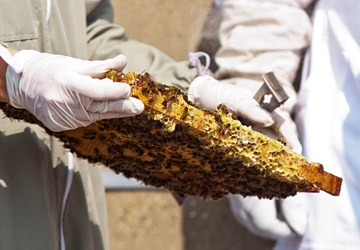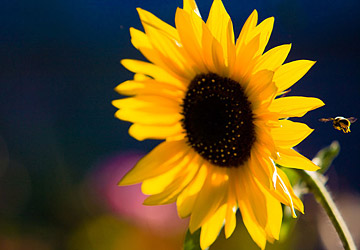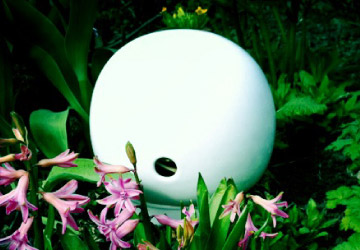First Class Honours in Survival for University of London Honeybees
Rooftop hives in central London are thriving
The rooftop honeybees are proving to be top of the class in the subject of survival and are adapting well to life at the University of London right in the centre of the UK’s capital.
Despite suggestions that urban beekeeping could be damaging to the bee population, the University’s honeybee colonies are growing in number and flourishing in their new urban surroundings on the roof of the Institute of Advanced Legal Studies (IALS), part of the University’s School of Advanced Study.
The project’s beekeeper, Camilla Goddard, explains: “Although there was a loss of one third of all UK honeybee colonies this spring, the University’s honeybee colonies, which were only small to start with, are building up nicely and are thriving in their Bloomsbury home. The honeybees look all set for winter.”
Since their arrival in June, the University’s honeybees have benefited from the good weather this summer as well as the abundance of natural forage available to them in Bloomsbury. The University of London is also working to ensure that more bee-friendly forage is being planted in the area, including the ‘Green Wall’ project which will see forage planted around what is now a construction site for the refurbishment of part of Senate House – home to the University of London.

With winter looming, the University’s honeybees are now busy filling their chambers with honey, and although they arrived late in the season, there should be plenty of reserves to see them through the winter and give them a head start in the spring.
Speaking on the University’s honeybee initiative and the difficulties facing the bee, Liz Bonnin, wildlife television presenter and former University of London graduate, said: “We are extremely dependent on bees and yet human activity has led to a massive decline in their numbers. As we strive to quantify the impact of pesticides, modern agriculture and imported disease-carrying mites on bee populations, it’s important to do all we can to support colonies.
“Every little helps, and this initiative is a wonderful way to add to honeybee numbers and enrich urban biodiversity. Beekeeping plays a vital role in the fight to protect our bees, and hopefully these Bloomsbury beehives will inspire others to get involved.”
Visit GreenJobs for the latest Wildlife Jobs.




